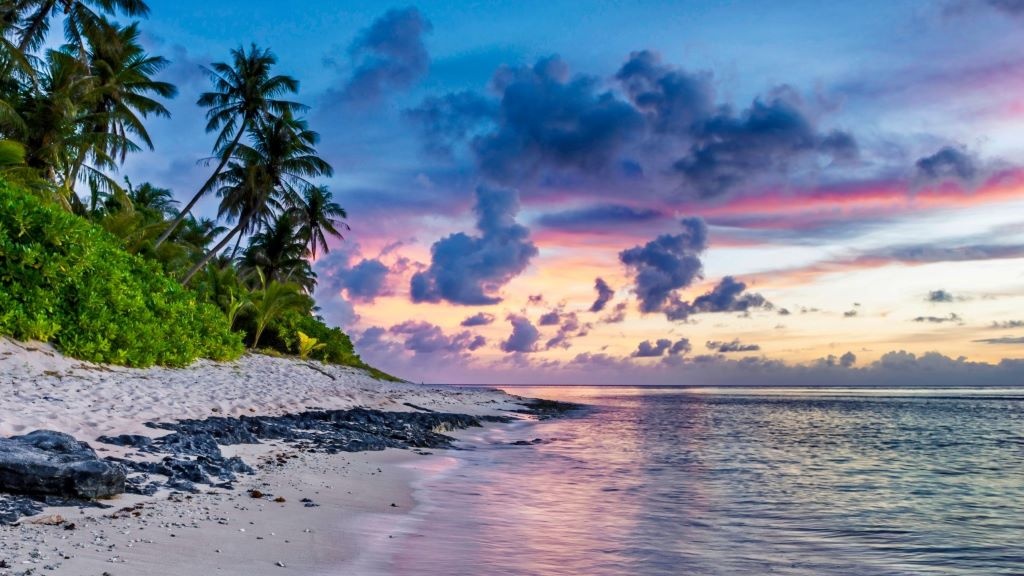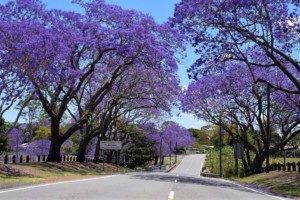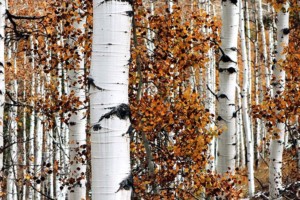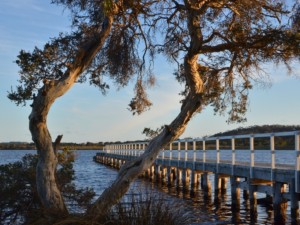Good news in tourism April 19 – 25, 2020

Published Sunday to be ready Monday, “Good news in tourism” is the perfect pick-me-up for the start of a new week in travel & tourism. And go!
“GT” stuff first:
Rachel Sherwood, a travel blogger from Oxfordshire in England, is organising well-deserved holidays for healthcare workers at the front lines of the coronavirus COVID-19 fight. Operation Recuperation is collecting pledges from accommodation providers and second home owners from all over the world. “GT” invited Ms Sherwood to write about “Operation Recuperation” and how hotels and resorts might get involved.
“GT” Insight Partner the World Tourism Association for Culture & Heritage (WTACH) has organised a webinar series “to help the industry through the COVID-19 crisis with insights from some of the most respected authorities in our travel industry”. WTACH’s “Tourism Expert Recovery” series of 12 webinars will run twice-weekly. The first, to take place Tuesday, April 28 at 0600 GMT, will feature Dr David Beirman, “International Tourism Expert on Tourism Crisis and Resilience” [capitalisation as per source material], from the University of Technology Sydney. Register here. [Your correspondent may attend to bring you the “GT” take. Or may not. So you had better be there just in case, eh?]
Malta’s Institute of Tourism Studies (ITS) and Ministry for Tourism and Consumer Protection have launched the world-first Diploma in Climate Friendly Travel in collaboration with “GT” Insight Partner The SUNx Program.
Corona contemplations
Perceptions of health risks will likely dampen tourism demand even when travel restrictions are stripped away. In any case, economic hardships brought about by job losses and business closures will mean many who would otherwise travel can’t or won’t.
Andy Northrop of Michigan State University in the USA cites consumer confidence research to suggest that destinations most likely to enjoy a quick rebound are small towns, rural communities, and beaches. And the tourism businesses that survive to see recovery in those places and elsewhere will have to be creative and adaptable.

For Japan’s tourism industry to emerge “more diversified and resilient” from the coronavirus pandemic it must “shift gear from hard to soft tourism”, according to corporate consultant Nobuko Kobayashi. She writes: “Crises accelerate and amplify existing, if subtle, undercurrents, and this crisis will bring to the fore the trend of soft or sustainable tourism, in which travelers spend longer immersed in the local culture they respect, rather than on coach tours ticking the boxes of famous sites.”
Canterbury Aoraki Conservation Board member Dr Robert Wynn-Williams reckons the time is right to discuss the future of tourism in New Zealand. He believes there are lessons to learn from Bhutan, which takes a “high value, low impact” approach.
Tourism in The Bahamas needs to be reimagined for post-pandemic life rather than discarded, according to Malcolm Strachan writing for The Tribune. “The government has to invest heavily in the Family Island experience and make eco-tourism more of a priority. Coming out of this experience, the simplicity of life is likely to become even more valuable […] Coupling tourism projects with initiatives to promote agriculture and food security may be the way forward.”
Dr Adelle Thomas, writing for the same outlet, took the climate change angle: “We must diversify our tourism product, decrease cruise ship tourism that harms our natural defences against climate impacts, and pursue more responsible forms of tourism. We should also further our efforts to encourage domestic tourism and reduce reliance on large numbers of international guests.”
Chief Minister of Penang state in Malaysia, Chow Kon Yeow, told a virtual tourism roundtable that Penang would adapt its “institutions, economy and society” to reflect “the new normal”. “Business as usual will not do anymore,” he reportedly said. “Please forget about attracting crowds of people in the next three to six months if not longer. Not only Malaysia is in a semi-lockdown, most of the governments in the world are banning their citizens from travelling abroad.” He said the state was looking into waiving hotel taxes for six months.
According to commercial real estate consultant Alexel Chen, the coronavirus pandemic is a reminder to tourism stakeholders in Sabah state, Malaysia that more planning needs to go into diversifying source markets and products. China and South Korea have accounted for more than two thirds of visitors to the Borneo island state, whose tourism industry is founded on rich natural and cultural assets. Sabah’s community-based rural tourism, MICE, and medical travel sectors have emerged more recently.
Don’t let a crisis go to waste
You can lead a horse to water but you can’t make it drink. Hint: To skip this opportunity, simply scroll down to the next subheading …
How about reflecting on your achievements, mistakes, and lessons learned; outlining your vision for the future of travel & tourism; telling the story of your “Good Tourism” journey, and whatever “good” means to you; sharing your “Good Tourism” Insights? ← That’s an opportunity, no?
Can’t write? Nonsense! Of course you can. And your correspondent will help you by proof-reading and lightly editing your “GT” Insight to ensure your happiness before it goes live. It’s all part of the “GT” service for “GT” Friends. ← ↑ Opportunity!
⇈ OPPORTUNITY! ⇈
Subscribe to “GT’s” weekly e‑news (it’s free) and follow “GT’s” various socials, such as its LinkedIn page. And if you find “GT” inspiring, interesting, somewhat amusing, or at least different then surely it’s worth a little something to you. So please …
It would mean a big something to “GT”!
COVID ops
There were lots of news items related to coronavirus-related operations and recovery plans. Here are a random few:

As the restrictions on tourism begin to relax, Experience Kissimmee (EK) in Florida, USA knows to focus on markets close to home first. Intrastate drivers from nearby cities such as Tampa, Jacksonville, St Petersburg and Miami will be the first target of tourism promotions, according to EK President DT Minich. The next will be interstate flyers from New York, Philadelphia, Chicago, Minneapolis and Dallas. And EK’s online strategy will be “very nimble” and easy to change, he reckons.
“GT” Insight Partner WTACH says it is “very pleasing” that Canada is committing CAD 306.8 million (USD 218 million) in stimulus funding to help 6,000 small-to-medium Indigenous businesses make it through the COVID-19 pandemic.
eThekwini Municipality in South Africa, which has the city of Durban at its centre has announced its Economic Recovery Plan, key elements of which include new tourism packages “appropriate to a post-coronavirus world” and the doubling of funding for “Community Tourism Organisations”.
The Shanghai Culture and Tourism Administration in China launched an “e‑passport” offering discount coupons, reward points and sales promotions at “more than 100 cultural and tourism products of over 200 businesses”: accommodation, food, attractions, tours, and shops. It’s “part of the city’s efforts to revitalize a market badly hit by the coronavirus epidemic”.
Reality check
“GT” rant alert. A long one. Scroll down to the next subheading to skip.
A reality check isn’t necessarily good news, although it can be interpreted as such by those who prefer facts over fantasy. Here’s a reality check pertaining to electric aviation: It appears economic stress is the reason Airbus and Rolls-Royce have axed the E‑FAN X programme only a year before the experimental hybrid-electric aircraft was due to make its first flight. Why? Airbus CTO Grazia Vittadini said her company has to “navigate the realities” of a world impacted by the coronavirus crisis.

When businesses are stressed they prioritise survival over research & development. They lower their gaze to “navigate the realities” of the here and now rather than look up to the skies for the sort of “moon-shot” that, for example, “GT” Insight Partner SUNx thinks is required for aviation to be climate-friendly. [Callback January 24, 2020: “SUN calls for “moon-shot” effort by aviation sector to be zero-carbon by 2050”.]
Of course there could be all sorts of reasons why Airbus and Rolls might pull out of the E‑FAN X project. COVID-19 may simply offer the most convenient and self-serving one. However that doesn’t change the fact that in “normal” economic conditions, organisations that pull out of such endeavours leave the door wide open for others. But who has the confidence, capacity, and resources to step in right now?
So, until the economy turns around, so much for our climate-friendly travel moon-shot … [But if the economy doesn’t turn around, the climate won’t change anyway, so, yay!? … Well, the climate will change as it has always changed; on its own terms … But it won’t kill us all in 12 years … It was unlikely to do that despite what alarmists said … If the Arctic farts out all its methane one day it might kill us … And tomorrow a large rock could slam into the planet. Meanwhile there are jobs and taxes and social safety nets in jeopardy. Oh, and by the way, this is what a sincere response to “climate emergency” would look like; when all but essential travel is shut down! Just look at the Venetian canals and Delhi skies and Lopburi monkeys and Llandudno goats … SLAP!]
While there is much talk about the merits of disconnecting from economic growth, the reality is that growth is important. The technologies we rely upon in the present — and the reason most of us don’t live the short, fearful, brutal lives our ancestors did — are both the products and drivers of economic growth. The surpluses generated by productivity growth support the innovators; the scientists and artists and thinkers and tinkerers whose innovations in turn fuel more growth. Sure, new technologies sometimes put us in harm’s way but more often than not, as evidenced by our very existence, technology helps us mitigate danger. Surpluses, and the innovations and technologies and arts and cultures they give rise to, are the foundation of human flourishing and will play a huge role in solving our existential problems now and into the future; just as they helped our ancestors solve their problems.
Some misanthropes in our industry spout fantastic nonsense about Nature or Earth or Gaia deploying SARS-CoV‑2 in a deliberate act of vengeance against humanity as if the natural world has its own sentience set in opposition to our own. Putting sincerely-held spiritual and religious beliefs aside so that they may be duly respected in appropriate venues, we should never forget that Homo sapiens is also of the natural world. We don’t possess some supernatural property. Our species’ flourishing or falling is as natural as wind. That’s not to say we should not progress with an evolved awareness of cause and effect. But for whom? Or for what? Not for nonsense.
So now we face economic recession or, worse, economic depression. These phenomena represent a contraction in confidence, if not a reduction in the production of bare essentials. With less to go around the natural instinct of self-preservation kicks in a lot harder than during good times. Under such conditions, people and organisations and communities and nation states more jealously guard what they have. Without surplus there is less to redistribute to those who have little. Without surplus there is little to offer the innovators; the scientists and artists and thinkers and tinkerers who helped bring us those good times we so sorely miss now. Without surplus there are fewer moon-shot attempts.
And without surplus there is no such thing as discretionary travel & tourism. Except for those who have savings. Unspent earnings from a paycheck are savings. Unspent taxes are savings. But what are savings if not surpluses? What are debts? The savings of others to be spent in the present at the expense of future surpluses.
In another context another name for a surplus is “profit”. Dirty word? Maybe. But, who cares? PROFIT! Our travel & tourism livelihoods depend upon it. Even tenured tourism academics in their ivory towers rely on institutional (not-for-)profits, or taxes (on profits), for their paychecks. And the jet-setter tourism consultants with their woo-woo witchcraft don’t do their trickstering for charity, do they? No. They are often paid in taxes too.
Over the course of human history, discretionary travel & tourism has been a rare and extraordinary luxury reliant on the profit or savings of those who engage in it. Yet some in our industry claim that after the pandemic tourism opportunities will be selflessly given up by the “haves” to be shared among the “have-nots”. Apparently a socialist utopia will magically emerge! That is likely true at the family or friendship group level where communal sharing is natural in good times and in bad, maybe even at the small community level, but at the scale of societies filled with strangers the reality is that selfish incentives dominate. The Chinese “Communist” Party figured that out decades ago. That’s why they leverage free markets to generate surpluses. And the CCP has profited.
To anyone in a market-based liberal democracy calling for “system change” for the sake of sustainable travel & tourism, please be careful what you wish for. You might regret what you get. Be specific about what you want and engage in the marketplace of ideas. Both sides: The demand side by continuing to communicate with travellers about how they can choose to be more responsible, to pare back, to conserve, to save; or how they can use their individual liberty for good. (Because reason helps make the world a better place. Doesn’t it?) And the supply side by sharing best practices with tourism stakeholders and by advocating for greater host community involvement in destination planning, management, and marketing; or how destination managers can use democracy for good. (Because nobody wants nasties in their backyard. Do they?)
If you are lucky enough to live in a market-based liberal democracy — and you are not wallowing in the politics of identity and victimhood and historical oppression on behalf of yourself or others, which, ironically, you are allowed to because the system you complain about is in fact exceedingly, unprecedentedly, tolerant — then do yourself and others the favour of leveraging the rights and responsibilities at your disposal to be the change you wish to see in the world; as Mohandas Gandhi is credited as saying (but may not have).
Anything more authoritarian than that risks becoming tyrannical. And tyranny ain’t good.
But what would your correspondent know?
Odds & ends
Newsy bits that don’t easily fit into this week’s arbitrary clusters:

In India “there are great examples of how wildlife is thriving because of responsible community-based tourism models” wrote Aly Rashid for Outlook Traveller. “Whether it is snow leopards in Ladakh, or red pandas in Darjeeling or the rhinos in Kaziranga or the lions in Gujarat; their existence is being boosted primarily by great conservation efforts by our forest department and also by the local economies that have been formed by responsible wildlife tourism.”
Be healthy. Be happy. Have a good week!
Featured image (top of post): Life’s a beach. By Kevin Phillips (CC0) via publicdomainpictures.
To help your correspondent keep his energy-efficient lights on, please consider a private one-off gift or ongoing donation. THANK YOU to those who have! <3
You are a tourism stakeholder — yes, YOU! — so what’s your view? Do you disagree with anything you have read on “GT”? Join the conversation. Comment below or share your “Good Tourism” Insights. Diversity of thought is welcome on The “Good Tourism” Blog.
Disclaimer 1: It is “GT’s” policy to fully disclose partner/sponsor content. If an item is not disclosed as partner or sponsor-related then it will have caught “GT’s” attention by some other more organic means. Partner with “GT”. You know you want to.
Disclaimer 2: None of the stories linked from this week’s post have been fact-checked by “GT”. All terminology used here is as the linked sources used it according to the knowledge and assumptions they have about it. Please comment below if you know there has been buzzword-washing or blatant nonsense relayed here, but be nice about it as the linked sources might get offended. (“GT” won’t.) And as for “GT” bringing it to your attention so that you might be the one to set the record straight, you are welcome! 🙂





